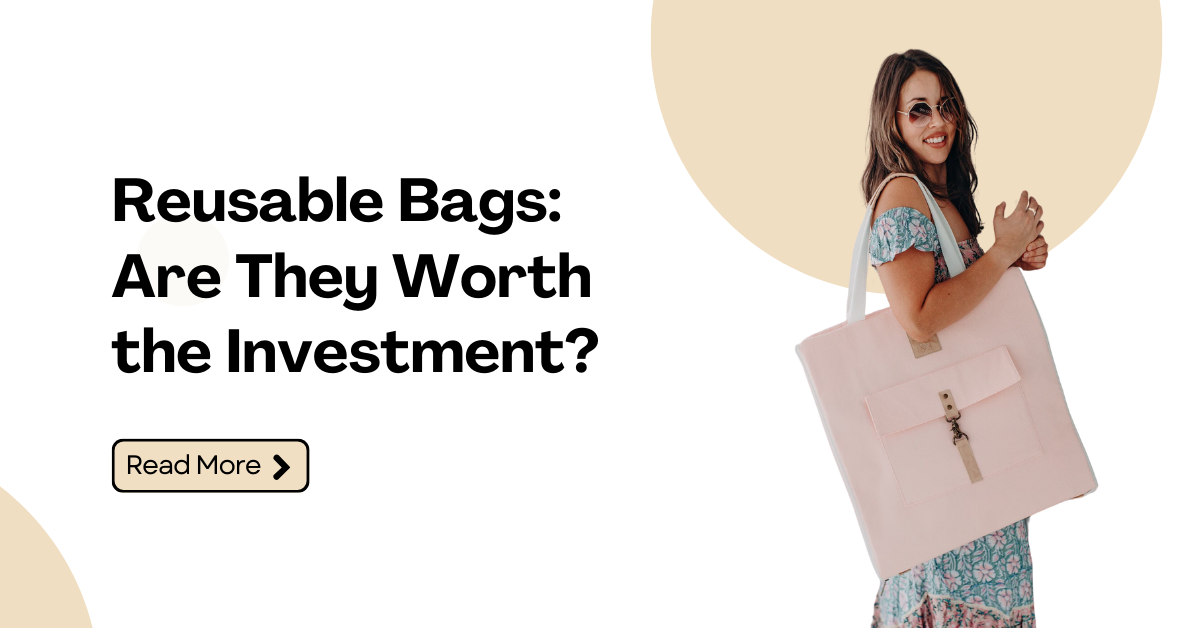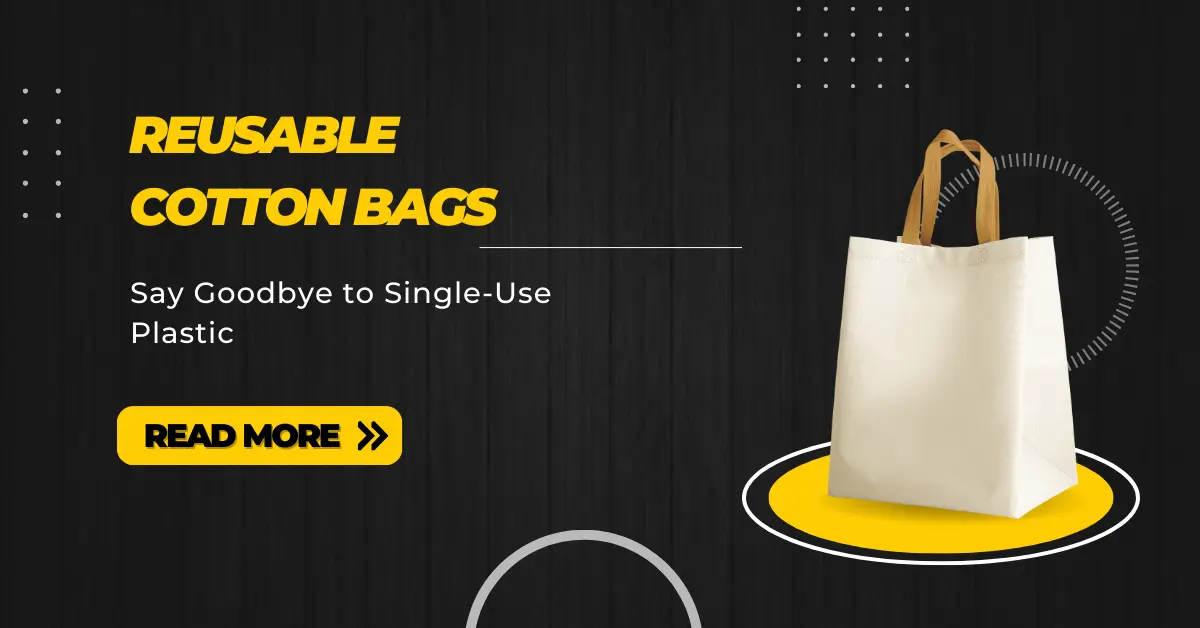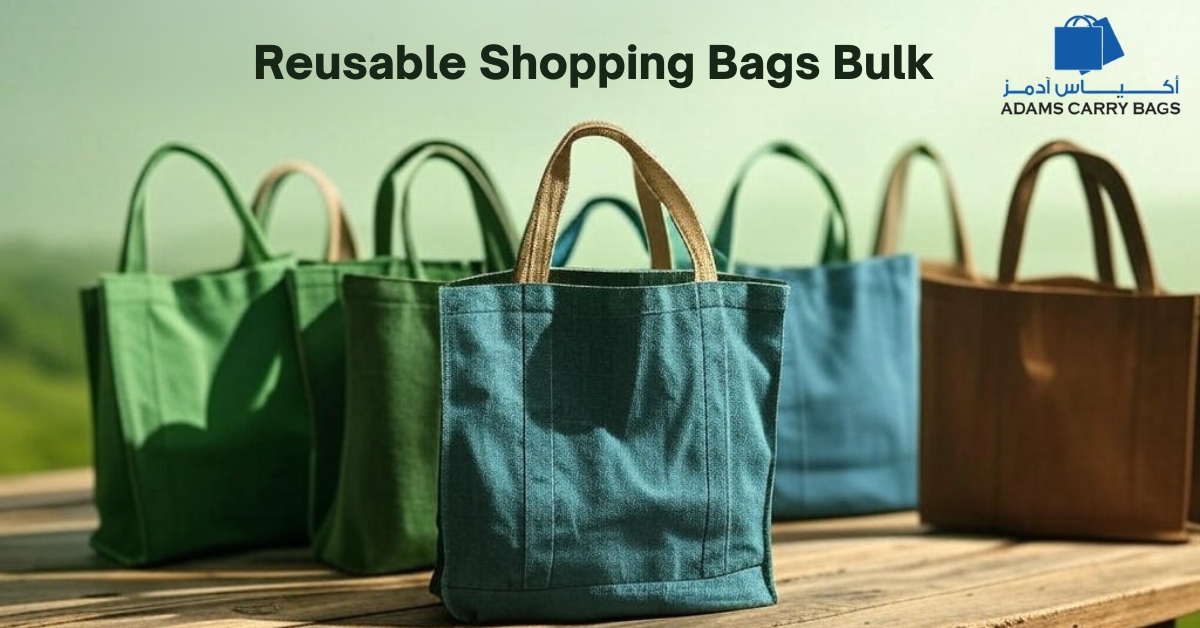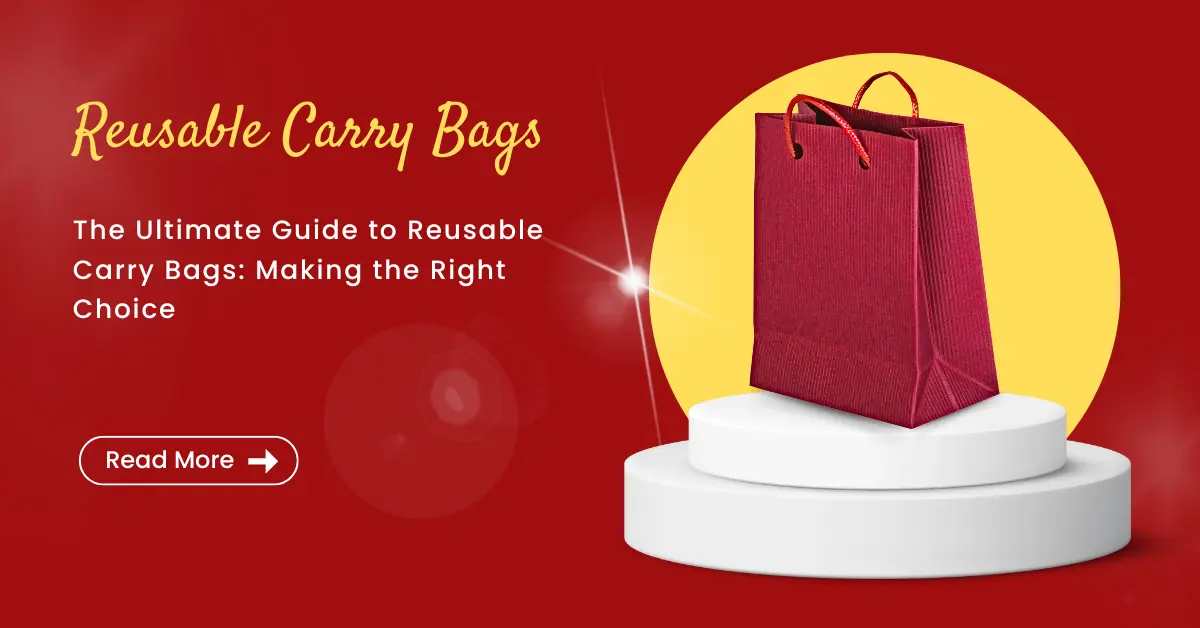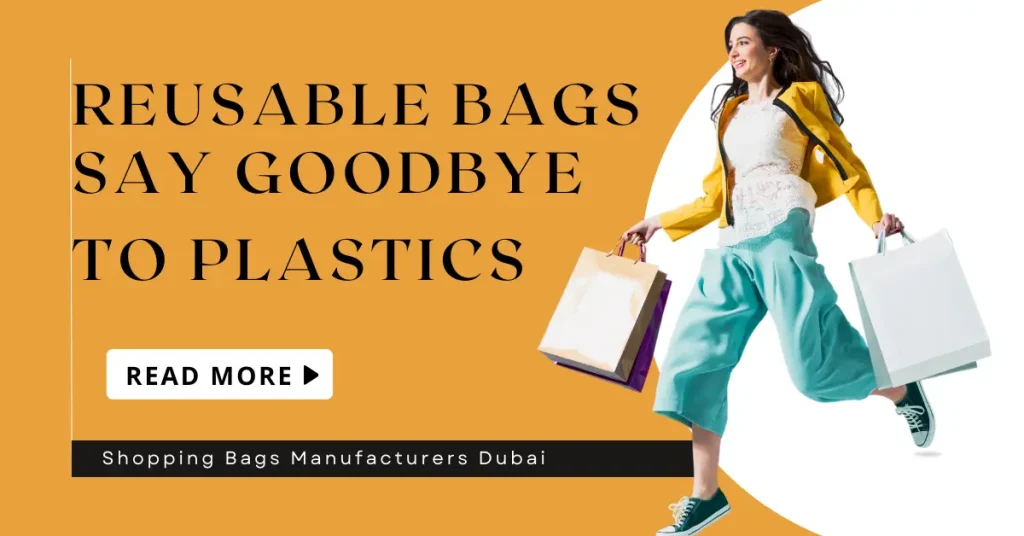
Single-use plastics have become ubiquitous in our daily lives, from grocery store bags to beverage bottles and food packaging. However, their convenience comes at a steep cost to our environment. These plastics take centuries to decompose, and during that time, they release harmful chemicals into the soil and water, contributing to pollution and posing significant risks to ecosystems and human health alike.
But amidst this grim reality, there shines a beacon of hope: reusable bags. These simple yet powerful alternatives offer a sustainable solution to the plastic crisis we face. By choosing reusable bags over their single-use counterparts, we can drastically reduce the amount of plastic waste entering our landfills and oceans.
The benefits of switching to reusable bags extend far beyond waste reduction. Consider the financial aspect: while reusable bags may require a small initial investment, they quickly pay for themselves by eliminating the need for constantly purchasing disposable plastic bags. This not only saves money for individuals but also reduces the financial burden on municipalities tasked with managing waste disposal.
Moreover, reusable bags are durable and convenient to use. Made from sturdy materials like canvas or recycled plastic, they can withstand heavy loads and last for years with proper care. Their versatility allows them to be used for various purposes beyond grocery shopping, from carrying gym clothes to packing for a weekend getaway.
Transitioning to reusable bags is not only beneficial on an individual level but also part of a larger movement towards sustainability. Governments and businesses worldwide are taking action to reduce single-use plastics through bans, fees, and corporate sustainability programs. By embracing reusable bags, we support these initiatives and contribute to a more eco-conscious society.
However, the transition to reusable bags is not without its challenges. Some may express concerns about cleanliness or perceive them as inconvenient compared to single-use options. Addressing these concerns requires education and awareness-raising efforts to highlight the benefits of reusable bags and dispel common misconceptions.
The Environmental Impact of Single-Use Plastics
The environmental impact of single-use plastics extends far beyond what meets the eye. From the extraction of raw materials to production, transportation, disposal, and beyond, every stage of the plastic lifecycle has significant environmental consequences. Addressing these impacts requires concerted efforts to reduce plastic consumption, promote alternatives, improve waste management practices, and foster a culture of environmental stewardship and sustainability.
Single-use plastics have become a ubiquitous part of modern life, but their convenience comes at a significant cost to the environment. Beyond the well-known issues of pollution in landfills, threats to marine life, and microplastic contamination, single-use plastics also contribute to a range of other environmental problems.
One of the key concerns is the extraction and production of the raw materials used to make single-use plastics. Many plastics are derived from fossil fuels, such as oil and natural gas, which are non-renewable resources. The extraction and processing of these fossil fuels have significant environmental impacts, including habitat destruction, air and water pollution, and greenhouse gas emissions, which contribute to climate change.
Furthermore, the manufacturing process for single-use plastics consumes large amounts of energy and water, further exacerbating environmental pressures. Additionally, the transportation of plastic products and packaging materials adds to carbon emissions and air pollution, contributing to global environmental degradation.
Another often overlooked aspect of single-use plastics is their role in disrupting natural ecosystems. Plastic debris can alter habitat structures, block waterways, and interfere with the movement of animals, disrupting ecological processes and biodiversity. For example, plastic pollution can smother coral reefs, suffocate aquatic plants, and alter the behavior and distribution of marine species.
Pollution in Landfills
When single-use plastics end up in landfills, they can take hundreds of years to decompose, releasing harmful chemicals into the soil and water.
Marine Life Threats
Millions of marine animals are killed each year due to plastic pollution. From entanglement to ingestion, the consequences are devastating.
Microplastic Contamination
Even the smallest pieces of plastic can have big consequences. Microplastics are infiltrating our waterways, soil, and even the air we breathe, posing serious risks to both human and animal health.
Benefits of Switching to Reusable Bags
Environmental Conservation
In addition to reducing waste generation, switching to reusable bags also contributes to broader environmental conservation efforts. By decreasing the demand for single-use plastics, we can help conserve natural resources and reduce the environmental footprint associated with plastic production and disposal. This includes reducing the need for fossil fuels used in the production of plastic materials, as well as mitigating the pollution and habitat destruction associated with the extraction of raw materials.
Protection of Wildlife
Reusable bags play a crucial role in protecting wildlife and preserving biodiversity. Unlike their disposable counterparts, which often end up as litter in natural habitats, reusable bags are less likely to be discarded improperly. This helps prevent wildlife entanglement and ingestion of plastic debris, which can have devastating consequences for marine and terrestrial species. By choosing reusable bags, we can help safeguard ecosystems and support the conservation of vulnerable wildlife populations.
Promotion of Sustainable Practices
Making the switch to reusable bags is not just about reducing waste; it’s about embracing a more sustainable way of living. By consciously choosing reusable options over disposable ones, we demonstrate our commitment to environmental stewardship and encourage others to follow suit. This promotes a culture of sustainability and encourages businesses and policymakers to adopt more eco-friendly practices, leading to positive systemic change.
Community Engagement
Using reusable bags can also foster a sense of community engagement and collective action. Whether through community clean-up events, grassroots advocacy campaigns, or local initiatives to promote reusable alternatives, individuals can come together to raise awareness about the importance of reducing plastic waste and protecting the environment. By participating in these efforts, we can build stronger, more resilient communities and inspire others to join the movement for a cleaner, greener future.
Transitioning to Reusable Bags: Tips and Tricks
Multipurpose Utility
Being handy for impromptu shopping trips, foldable bags have a multitude of other uses. They can serve as an extra tote for carrying books, snacks, or personal items while on the go. Whether you’re heading to the beach, attending a picnic, or running errands around town, having a foldable bag at your disposal ensures you’re always prepared for whatever the day brings.
Eco-Friendly Materials
When choosing reusable bags, opt for those made from eco-friendly materials that minimize environmental impact. Look for bags made from organic cotton, hemp, or jute, which are renewable and biodegradable alternatives to traditional synthetic materials. Additionally, consider supporting brands that prioritize sustainability and ethical manufacturing practices, such as those certified by organizations like Fair Trade or the Global Organic Textile Standard (GOTS).
Customization and Personalization
Many reusable bag options allow for customization and personalization, allowing you to express your individual style while reducing your environmental footprint. Consider purchasing blank canvas bags that you can decorate with fabric markers, patches, or embroidery, adding a unique touch to your reusable shopping companion. Alternatively, support local artisans or small businesses by purchasing handmade or custom-designed reusable bags that reflect your personality and values.
Overcoming Common Objections to Using Reusable Bags
Concerns About Cleanliness
One common objection to using reusable bags is concerns about cleanliness and hygiene. Some people worry that reusable bags may harbor bacteria or odors, particularly if they are used to carry groceries or other items that may leak or spill.
It’s essential to emphasize the importance of regular cleaning and maintenance of reusable bags. Encourage users to wash their bags regularly, either by hand or in the washing machine, using mild detergent and warm water. Remind them to pay special attention to any areas that come into contact with food or liquids, and to allow the bags to dry completely before storing them.
Additionally, suggest using separate bags for different types of items to prevent cross-contamination. For example, designate one bag for groceries, another for gym clothes, and a third for miscellaneous items. This helps reduce the risk of transferring bacteria or odors between different types of items.
Finally, reassure skeptics that with proper care and hygiene practices, reusable bags can be just as clean and sanitary as disposable plastic bags, if not more so. Emphasize the environmental and health benefits of using reusable bags, and provide information on how to maintain them effectively to alleviate concerns about cleanliness.
Perception of Inconvenience
Another common objection to using reusable bags is the perception of inconvenience compared to single-use plastic bags. Some people may worry that reusable bags are bulky, cumbersome, or difficult to remember to bring with them when they go shopping.
To overcome this objection, highlight the convenience and versatility of reusable bags. Encourage users to keep a compact, foldable bag in their purse, backpack, or car, so they’re always prepared for impromptu shopping trips. Remind them that reusable bags are durable and can hold up to heavy loads, making them suitable for carrying groceries, books, or other items.
Additionally, showcase the variety of reusable bag options available, from stylish totes to functional backpacks and everything in between. Highlight the benefits of choosing high-quality materials, such as canvas or recycled plastic, which are durable, long-lasting, and easy to clean.
Finally, emphasize the long-term cost savings of using reusable bags compared to constantly purchasing disposable plastic bags. By investing in a few reusable bags upfront, users can save money over time and reduce their environmental footprint—a win-win situation for both their wallets and the planet.


